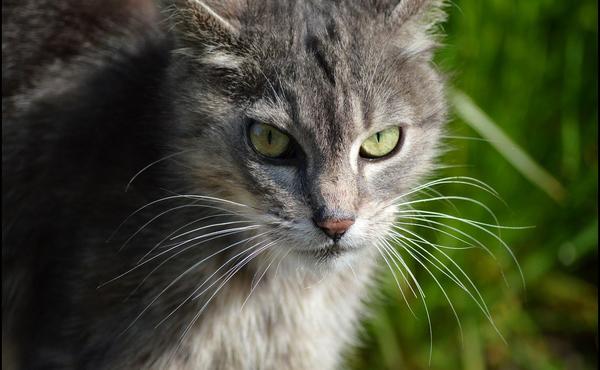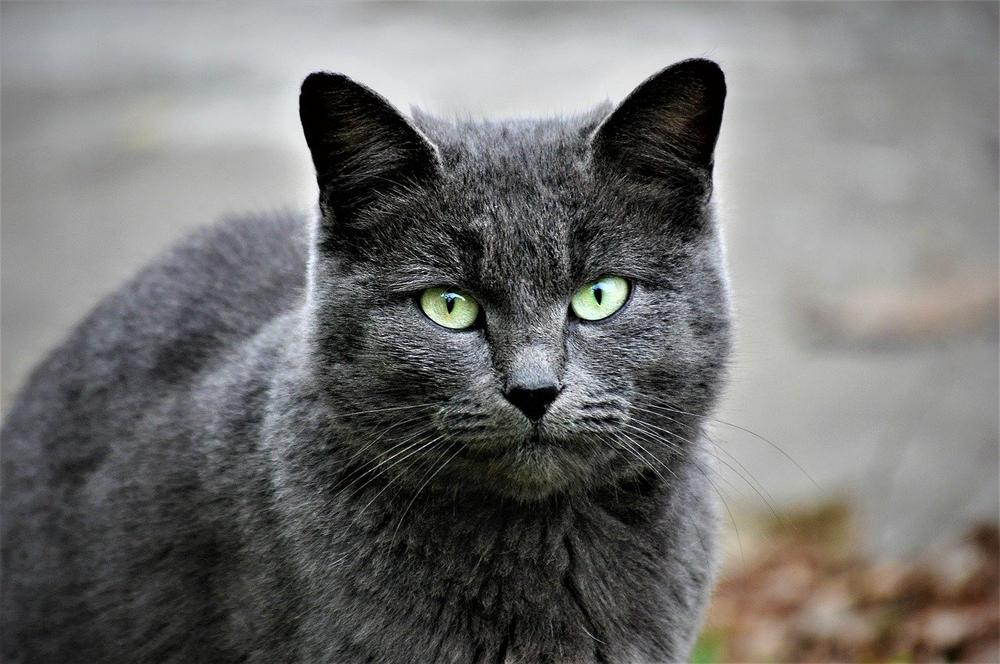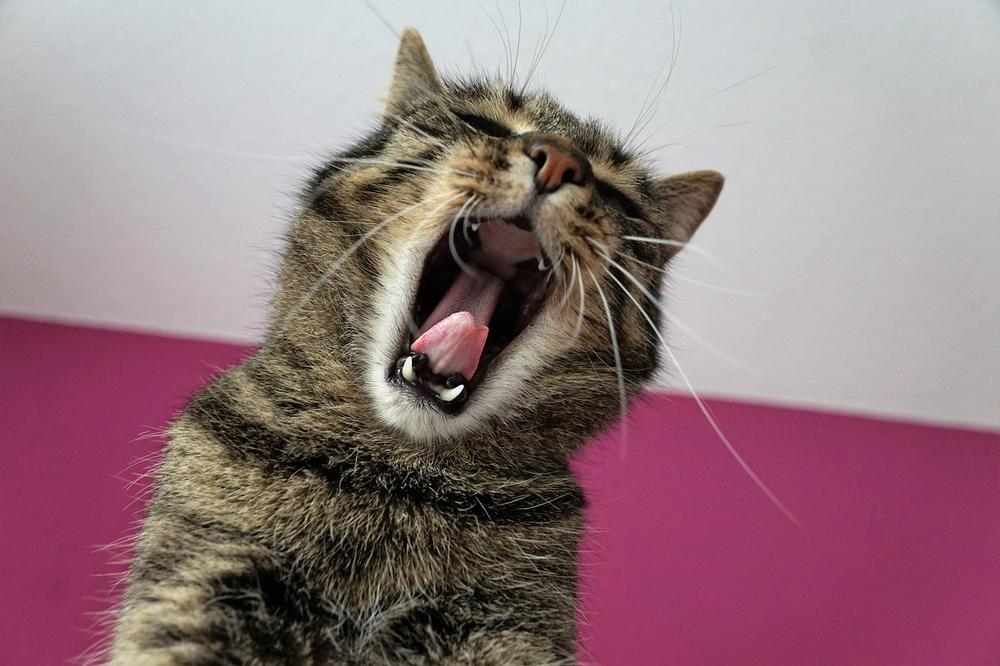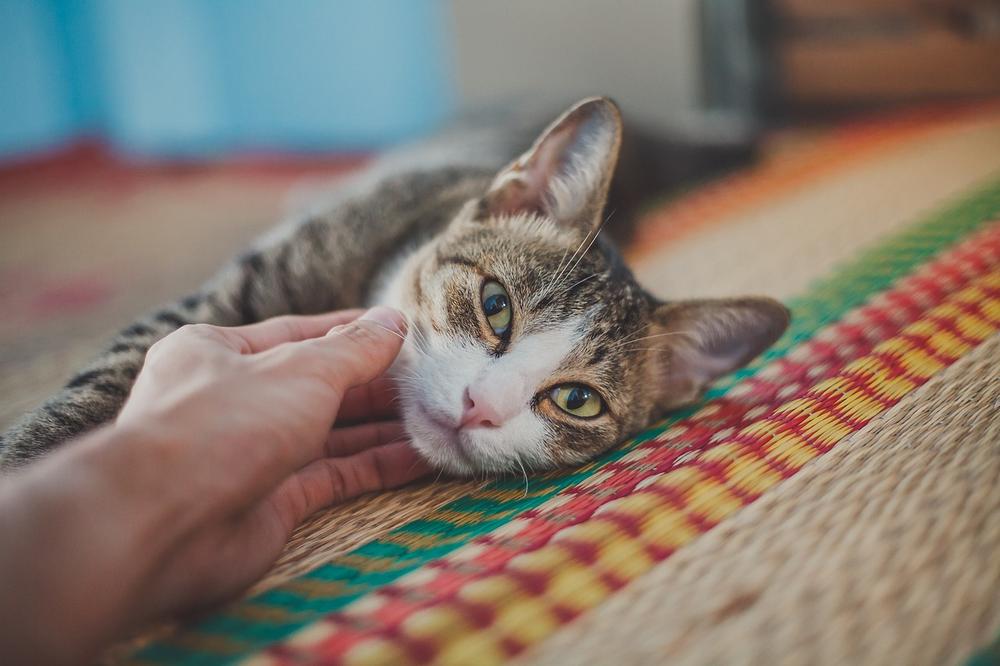Why Doesn't Your Cat Meow?

Is your cat's silence driving you crazy?
Are you lying awake at night, wondering why your feline friend won't utter a single meow? 😺
I hear you.
It's like trying to have a conversation through a brick wall.
You start to worry that your cat has lost interest in communicating with you altogether.
But fear not, my fellow cat enthusiasts.
Let's delve into the mysterious world of cat meows and uncover the truth together.
So buckle up, grab a cup of tea, and let's find out why your cat is keeping their meows to themselves.
Medical Conditions that Can Affect Meowing
When it comes to a cat meowing, there are a few medical conditions that can affect it.
- Cats can get upper respiratory infections just like humans get colds. This can make their voice sound different or even hoarse.
- Problems with the larynx, like paralysis or polyps, can mess with a cat's vocal cords and make them lose their voice or have trouble meowing.
- If a cat has cancer in its throat or mouth, tumors can block the airway or mess up the vocal cords, so their meow might change.
- Chronic illnesses like asthma or bronchitis can make a cat cough or wheeze, which can make a difference in their meowing.
- Stress is another thing that can disturb a cat's meowing. When cats are stressed, they might meow less or stop meowing completely.
If you see any of these changes in your cat's meowing, you ought to take them to the vet for a proper check-up.
It's also key to pay attention to other symptoms, like if your cat has a decreased appetite, has a runny nose, or seems tired all the time.
If your usually talkative cat suddenly becomes silent or shows signs of being sick, it's best to ask a professional for advice. 😺

However, if you've tried everything to make your cat meow and it doesn't work, don't worry too much.
It might just be your cat's normal behavior.
Remember, you're the one who knows your cat best, so trust your instincts and get help from a veterinarian if necessary.
And now, let's delve into the fascinating world of cat meows and how they differ in meaning and purpose!
Understanding Your Cat's Meows
To effectively communicate with your cat, you must understand their meows. Here's what you should know:
- Your cat uses different meow sounds for different reasons - when they want food, attention, or if they're feeling anxious.
- Each cat has its own unique meow language. Pay close attention to the pitch, tone, and frequency of their meows to grasp their message better.
- Remember, meowing is mainly a way for cats to communicate with humans. They don't meow at each other unless they're kittens talking to their mom.
- Some cat breeds are more vocal than others. For instance, Siamese cats are known for their loud and frequent meows; others may not meow as much.
- The intensity and volume of meowing also vary among individual cats. Some are chatterboxes while others prefer silence.
- Always consider the context behind the meow. Is your cat craving attention, food, or in discomfort? Understanding the situation helps you meet their needs appropriately.
- Meowing can be a way for your cat to connect with you. Strengthen your bond by responding to their meows and engaging in conversation.
- If your cat's meowing patterns suddenly change, it might indicate an underlying health issue. Stay vigilant for significant shifts and consult your vet when needed.
Understanding your cat's meows in detail will allow you to better grasp their needs and emotions, thus enabling you to give them the best possible care.

To truly understand your cat's meows, I highly recommend delving into the fascinating reasons behind their pre-sleep self-cleaning ritual.
In my guide, you'll discover the hidden secrets and surprising motivations that drive this quirky behavior.
Curiosity piqued? Satiate your curiosity by exploring the intriguing world of feline grooming in my article, Why Do Cats Clean Themselves Before They Sleep.
Understanding Feline Vocal Health: Causes and Effects of Meowing
Feline vocal health can be affected by throat or vocal cord inflammation, infections, or exposure to irritants like cigarette smoke. Cats have their own unique ways of communication, including purring, trilling, and chirping. Some breeds, like Siamese cats, are known for being more vocal. Cats meow for attention, to express needs, and during breeding season. Keeping a log of their sounds can help uncover the reason behind their silence.
Are you curious about why your cat doesn’t meow?
Well, my friend, there are several potential explanations for this unusual behavior.
First and foremost, let’s address your cat’s vocal health.
Inflammation or infections in the throat or vocal cords can hinder a cat’s ability to meow properly.
Similarly to humans, cats can also fall ill.
Exposure to cigarette smoke or airborne irritants can lead to these unfortunate conditions.
So if you’re smoking around Mr. Whiskers, that could be the reason behind his silence.
But here’s the thing!
Cats use various methods of communication, and meowing is just one aspect of their repertoire.
Some cats simply aren’t inclined to vocalize much, opting instead for purrs, trills, or chirps.
They have their own unique language.
Quite sneaky, isn’t it?
Furthermore, as cats grow older, they tend to employ more aggressive sounds like yowling and hissing to express themselves to their furry companions.
Now let me ask you this:
Have you considered your cat’s breed?
Particular breeds, such as Siamese cats, are renowned for their chattiness.
Those little creatures can chatter away like a group of gossiping old ladies.
It’s absolutely adorable.
And here’s another point to ponder:
Cats meow for different reasons.
Sometimes, it’s a way to seek attention.
Other times, it’s a means to communicate “Hey, I’m cold” or “Give me some food, please”.
They have needs just like us. Oh, and here’s an intriguing tidbit:
Adult cats generally don’t rely on meowing to converse with fellow felines, but they may emit a yowl during the breeding season.
You know, gotta find love and all that.
So, my friend, if you’re trying to unravel the mystery of your silent cat, one strategy you can employ is keeping a log of when and why they make any sounds at all.
This may assist in uncovering the reason behind their silence (or lack thereof).
Stay tuned for more intriguing cat-related wonders in our upcoming segment!
Pay attention, because here's the crux of it: If you're eager to learn more about how environmental factors can influence your cat's meowing behavior, keep reading. I'll provide valuable insights further down the blog post. Get ready for some fascinating information!
Dealing With Excessive Meowing
Understand why your cat meows excessively
Meow, meow, meow... I know you adore your cat, but that constant meowing can be a real pain.
Before you lose your cool, let's dig into why your feline friend is meowing so much.
First things first, let's check their health. Excessive meowing could mean something is wrong with your cat, like pain or an underlying medical issue. Don't waste time, grab your cat carrier and head straight to the vet for a check-up.
Keep your cat entertained for a quieter home
Boredom is often the culprit behind excessive meowing.
Here's where environmental enrichment comes in.
You need to keep your cat entertained and mentally stimulated so they don't resort to non-stop meowing.
Invest in interactive toys, scratching posts, and puzzle feeders.
Not only will these redirect their attention, but they'll also provide hours of fun and mental challenges for your cat.
Trust me, they'll absolutely love it!
Identify triggers and divert their attention
Now, let's chat about understanding your cat's meow patterns and triggers.
Cats are smart creatures and use meowing to communicate their needs. By paying attention to when and why your cat meows excessively, you can address their specific triggers.
When you notice those trigger moments approaching, distract them with toys or play sessions.
Some cats get easily captivated by a little jingling toy or a quick playtime.
Others respond well to treats or a change in the environment.
Experiment and find what works best for your precious furry pal, without relying solely on websites or sources.
If you're curious about why cats meow before they use the litter box, I have a fascinating article that explains it in detail. Discover why this behavior occurs and gain a deeper understanding of your feline friend's needs. Learn more here.
And now, let's delve into some additional factors that may contribute to your cat's lack of meowing.
Understanding these reasons can provide valuable insights into your furry friend's behavior and help you address any concerns effectively...
Environmental Factors and Meowing Behavior
Cats meow more during hormonal changes, like females in heat or males marking territory.

Spaying and neutering help control excessive meowing caused by these instincts.
Stress also affects how much cats meow. To help them, identify stressful elements around them.
Recognize their needs by understanding stress's impact on cats. Create a calm environment to reduce excessive meowing.
Summing it up
- Check for medical conditions such as infections, laryngeal issues, and cancers.
- Look for symptoms like hoarseness, changes in meowing patterns, and weight loss.
- Consult a vet if your cat becomes quiet suddenly or shows other symptoms.
- Kittens meow to communicate with their mothers, while adult cats use it to communicate with humans.
- Note that cats meow to get attention or ask for something from their owners.
- Cats have different vocalizations like purrs, trills, and chirps.
- Certain breeds, like Siamese cats, are more talkative.
- Keep a log book of circumstances surrounding meowing to understand the reason.
- Identify the cause of excessive meowing and consult a vet if necessary.
- Recognize and address potential stress factors in the cat's environment.
And that wraps up today's article.
If you wish to read more of my useful articles, I recommend you check out some of these: Why Do Cats Sit on Laptops, Why Does My Cat Sleep on Me, Can Kittens See in the Dark, and Why Does My Cat Wait Outside the Bathroom
Talk soon,
-Sarah Davis